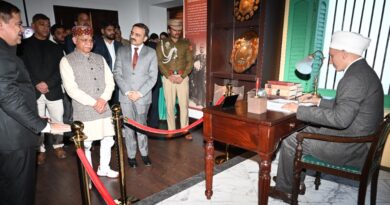Shimla’s Vanishing Melody: A Requiem for the Queen of Hills
Once, Shimla was not just a town—it was a sonnet written in dewdrops and cedar sighs. The wind carried whispers of an older world, where time moved like honey down a spoon, golden and slow. Mall Road, its heart, was not mere pavement but a parchment of memories—each cobblestone a verse, each shopfront a stanza in the ballad of this hillside haven.
Now, the melody falters. The song of Shimla, once so clear, dissolves into the static of hurried footsteps and flickering screens.
Where Time Once Danced in Coffee Cups
Baljee’s was more than a café—it was a cradle of camaraderie. Steam curled from cups like the ghosts of conversations past, laughter lingering like the last notes of an old gramophone record. Nearby, the Town Hall stood tall, a regal relic of British stone and Shimla’s pride, its arched windows winking with the wisdom of a century. Now, it wears the mask of a modern bistro, its soul sanded down for sleekness, its stories drowned in the clatter of cutlery.
The Last Chapter of a Forgotten Library
Asia Book House was not a shop but a sanctuary—a cathedral of bound dreams where sunlight slanted through dust motes like blessings upon bowed heads. Here, the scent of yellowed pages was incense, and the creak of wooden floors a hymn. Generations tiptoed between shelves, fingers brushing spines as if touching relics. Hardy Boys, Ruskin Bond, Austen, Dickens—they were not just books but passports to other lives.
Now, the silence is different. The shelves, once pregnant with promise, grow gaunt. The children who once saved coins for Enid Blyton now trade attention for pixels, their minds fed on the fast-food feast of reels and scrolls. The rustle of paper, that sacred sound, is lost beneath the sterile tap-tap of thumbs on glass.
A City Swallowed by Its Own Echo
The Ridge, once a stage for starlit strolls and whispered sonnets, now blares with the tinny laughter of arcade games. The Mall, where couples once walked in step with the unhurried clock of the hills, now jostles with selfie sticks and neon. The LED glare washes out the lamplight glow that once gilded Shimla’s evenings in nostalgia.
This is not just change—it is erosion. The slow leaching of a town’s soul, drop by drop, into the river of sameness. The death of a bookshop is not just about profit margins; it is the burial of quiet thought, of the luxury of getting lost in ink and imagination. In a world drunk on speed, who has time to turn a page?
Can the Queen Still Reign?
The hills remain, but the poetry fades. The bones of Shimla still stand—the gables, the gullies, the ghostly grandeur of its past—but its pulse weakens. Yet, in the twilight between what was and what will be, a question lingers like the last light on Annandale:
Can Shimla remember its song?
Or will the Queen of Hills become just another postcard, its stories reduced to captions, its soul archived under #ThrowbackThursday? The epilogue is not yet written. Perhaps, between the echoes of the past and the noise of the now, there is still time to listen—for the whisper of pages turning, the hum of a coffee cup set down slowly, the faint, fading heartbeat of a town that once knew how to breathe.



